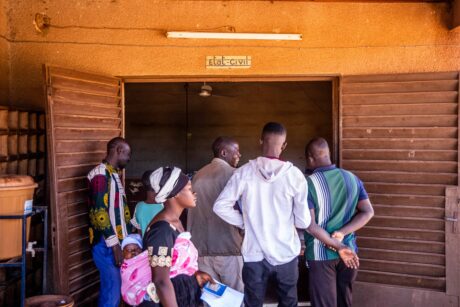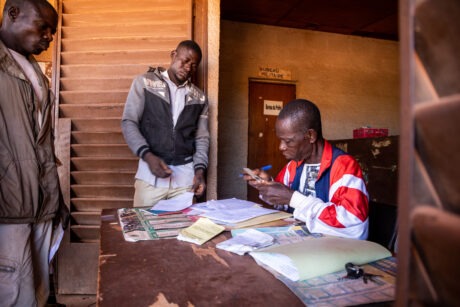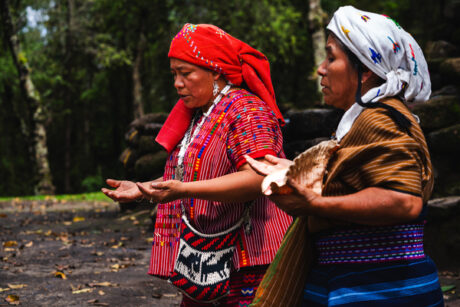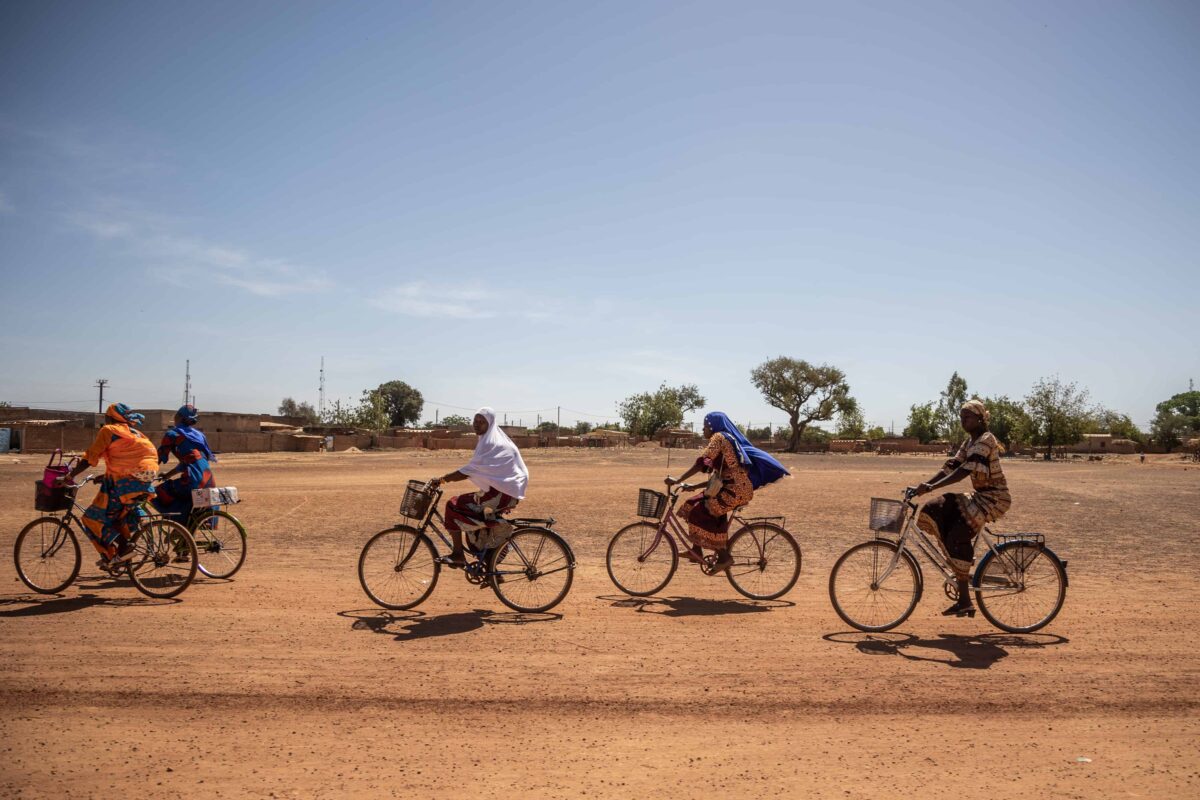Mientras Burkina Faso soporta la violencia extremista y la escasez de alimentos y agua, cuando las comunidades necesitan unirse detrás de soluciones urgentes, citizens have felt disconnected from their government.
Las comunidades de Burkina Faso evaluaron la solidez de su gobernanza local en 2021, un proceso apoyado por la Gobernanza Inclusiva para la Resiliencia de USAID (IGR) proyecto. They concluded that the projects that officials supported in the municipal budget did not reflect citizens’ priorities.
“Local leaders are not representative,” one citizen said.
“The councilors don’t do their job like they should. They only see their interests,” another said.
Three years later, communities around Burkina Faso are witnessing a surge in civic engagement with the support of IGR. In August and September 2024, officials in four communes ventured far from town halls and convened grassroots meetings in rural villages and urban neighborhoods to solicit residents’ input for the next local government budget.
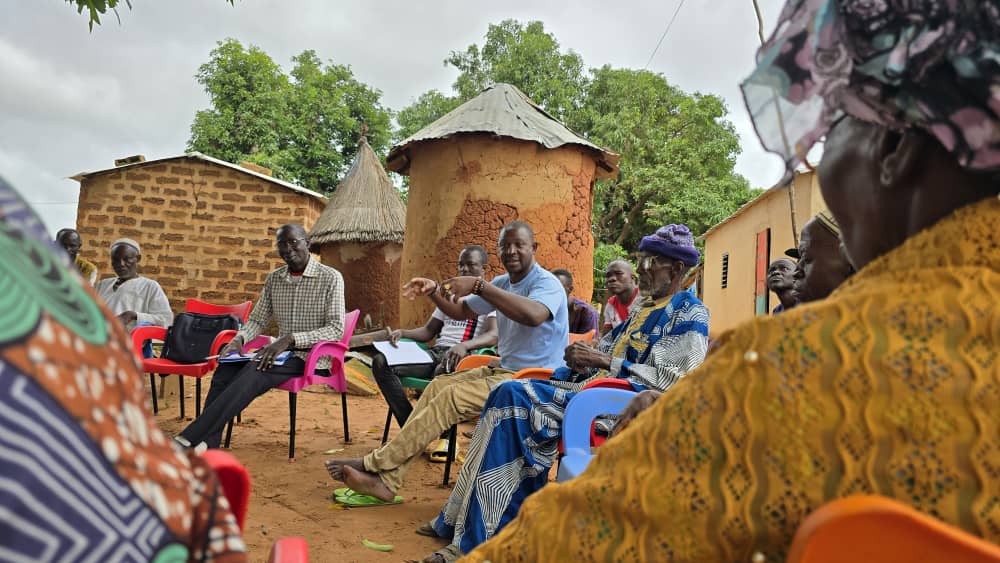
Alasson Soura, a resident of Niofila village, said he was impressed that officials from Douna commune had involved residents in a meaningful discussion that made the government’s decision-making transparent.
“If the budget reflects what the villagers expressed, they’ll be satisfied because the decisions were made in front of them, and everyone gave their opinion,” Soura said.
Assessing local government’s strengths and weaknesses
IGR gathered community stakeholders for workshops in 2023 to assess the strengths and weaknesses in local governance. In the rural commune of Guibaré in the north of Burkina Faso, community members concluded that while the municipal finance staff were competent, the government communicated little about the process of formulating the local budget. Exchanges of information between local councils and citizens were not formalized. Como resultado, citizens knew little about the process and were excluded from decision-making.
Local officials agreed that the path to stronger governance required making their processes more transparent and demonstrating that the government is accountable to the people by getting citizens more involved.
To support local officials in increasing transparency, accountability and mutual understanding with citizens, IGR organized training sessions in April and December 2023 para 102 officials involved in the budgeting process in six regions — Cascades, Centro Norte, Est, Hauts-Bassins, Nord and Sahel. Durante el entrenamiento, officials learned that involving citizens in crafting the budget increases their trust and satisfaction in government, making them more willing to pay taxes. Además, citizens’ participation gives officials valuable insights that make the budget more cost-effective.
The officials also learned how to structure citizen participation while ensuring the inclusion of women, juventud, people with disabilities and internally displaced persons (desplazados internos).
During co-creation workshops facilitated by IGR, local officials endorsed road maps outlining the steps they will take to increase public participation in governance. In Guibaré, officials pledged to improve the public’s understanding of the budget process through participatory budgeting by the end of 2025 while increasing citizen involvement in the government’s delivery of quality public services.

en agosto 2023, Guibaré’s Special Delegation or town council unanimously approved a resolution declaring that the commune would adopt a participatory process for future budgets. “Local governance requires the involvement of all stakeholders in the community,” the resolution states. “To do this, it is important, incluso necesario, to adopt an approach in which the process of planning, implementation and budget monitoring will put citizens at the center.”
“The desire to enable the population to understand better led us to adopt this approach so that everyone feels involved and has confidence in the Special Delegation’s management,” said Rasmané Ouedraogo, Secretary General of Guibaré Town Hall.
“The participatory budget process is very beneficial for the commune and the community. When community members are informed, they get involved in all the community’s development activities.”
Supporting the startup of participation
Sin embargo, participatory budgeting presents its own financial challenges. The local councils had no funds to organize outings around the commune and hold general assemblies of residents. Funds are particularly short recently as insecurity in the country has hampered the economy, reducing government revenue.
To support the municipalities’ interest in implementing participatory budgeting, en 2024, IGR provided grants to four communes to help organize participatory budget sessions. If strengthened citizen participation leads to increased tax collections, municipalities would be able to cover the cost of outreach in the future.
Another commune joining the move toward participatory democracy is Douna in the Cascades Region to the south. During the self-assessment facilitated by IGR, community members concluded that the local government recognizes the needs of vulnerable groups and was open to partnering with civil society. Sin embargo, the government did not publicize its process of formulating the commune budget and had no formal system for gathering public concerns. Como resultado, citizens participated little in identifying priorities.
Douna commune officials endorsed a road map to strengthen civic participation. With IGR’s help, they designed a plan to organize annual “accountability days” with general assemblies in the commune’s villages. The plan also calls for campaigns addressing the general public on the importance of civic engagement and addressing men on the importance of women’s involvement in governance. Their IGR grant will train council members and town hall officials on developing partnerships for citizen engagement and civil society organizations to participate in public processes.
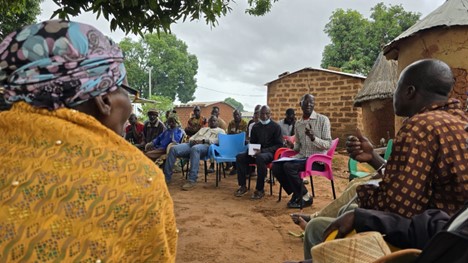
In Douna, the town council named some of its members to a committee charged with initiating participatory budgeting. They organized grassroots meetings around the commune to ask residents’ needs and expectations for the commune’s next budget. en agosto 2024, committee members met with community members in the commune’s villages and with specific groups, incluyendo a los jóvenes, mujer, people with disabilities and IDPs, to ensure their concerns were considered in the budget.
Soura of Niofila village was impressed by the visits. “This is the first time I’ve seen the special delegation from the mayor’s office go out into the villages to hear people’s needs before drawing up the budget,” Soura said. “This will motivate people to participate more in these meetings and promote inclusion and social cohesion. If things had been done like that in the past, we’d be at a different level of development today.”
Including women, jóvenes y grupos marginados
Douna officials held 15 village assemblies with IGR’s help. Madiara Soura, president of the Douna Women’s Coordination, appreciated that the officials had given women a platform to express their opinions on local governance.
en septiembre 2024, IGR helped three other communes initiate participatory budgeting: Fada N’Gourma in the Est Region, Kaya in the Centre-Nord Region and Ouahigouya in the Nord Region. Members of the town councils traveled to their commune’s villages to talk and gather residents’ viewpoints to inform them in shaping their budgets.
In Ouahigouya, Por ejemplo, IGR facilitated 35 general assemblies with 1,042 participantes. These assemblies allowed citizens to voice their concerns and identify priorities for the community.
In Kaya, 20 general assemblies brought together 834 participantes. In Fada N’Gourma, the commune and IGR organized 12 general assemblies that drew more than 1,000 residentes. Participants said funding is urgently needed for health centers, schools and access to clean water. Officials and residents discussed how they could mobilize resources, including the private sector’s support.
Residents said they want to see more of this sort of outreach, supported by more effective communication so that all communities are aware of the opportunity for interaction. But most agreed the gatherings were a meaningful step toward better governance.
“For once, the administration is taking an interest in young people and their concerns,” commented Moussa Kara, a youth representative in Douna.
Haoua Ango and Yacouba Kere contributed to this article.
